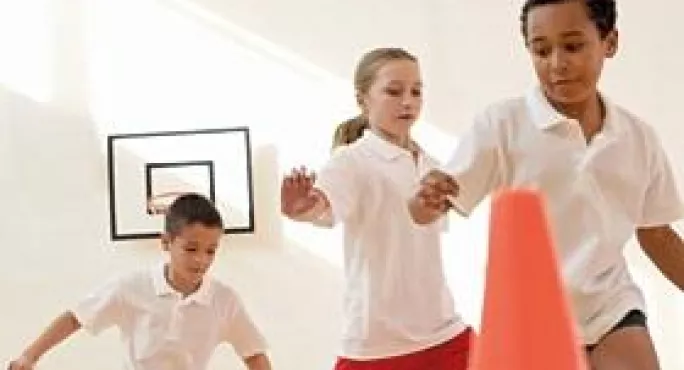UK sport chief: PE is not just a game

Primary school headteachers are failing to provide pupils with high- quality PE and sports skills and are instead happy to just see children “running around, making lots of noise”, the head of UK Sport has warned.
Baroness Sue Campbell, who is also chair of the Youth Sport Trust, said secondary schools were beginning to realise the potential beneficial effects that PE and sport could have on their pupils, but criticised primaries for lagging behind.
Her comments were made to TES on the eve of this year’s Youth Sport Trust annual conference in Telford, where she was expected to reiterate her call for primary schools to do more.
The quality of school sport currently faces intense scrutiny. A widely anticipated Ofsted report, looking into the past three years of school sport provision, will be published next week, while a government announcement about new funding for schools to cement a lasting Olympic legacy is imminent.
It is believed that among proposals being considered by ministers is the creation of a new teacher-training course for primary school PE specialists, who currently only exist in secondaries.
Baroness Campbell said the lack of such specialists was one of the challenges facing primary schools. ”(It means) heads don’t know what high- quality PE looks like,” she said. “It’s as if they look out the window and see kids running around, making lots of noise, and think that’s fine because they’re burning off energy.
“But it’s the same as throwing comics into an English lesson and claiming it is teaching them proper literacy. If you did that people would say it was disgraceful. But (PE in many primary schools) is the equivalent. It is just keeping them occupied. It is not real learning.”
As a result, too many primary pupils were leaving school lacking “physical literacy”, the former PE teacher said, and were unable to demonstrate basic skills such as running, jumping, catching and throwing.
The decision by education secretary Michael Gove to pull funding for school sports partnerships was viewed by many critics, including Olympians Darren Campbell and Denise Lewis, as detrimental to the provision of high- quality PE in schools, particularly in primaries.
According to figures released by the Department for Health in December, 23 per cent of children in Reception were classed as overweight or obese, while the figure rose to more than 30 per cent for pupils in Year 6.
Baroness Campbell’s comments chime with the findings expected to be published by Ofsted next week, which will show that outstanding PE was found in more than twice as many secondary schools as primaries.
The Association for Physical Education (AfPE) said that where PE was done well in primary schools it was exceptional, but that too often heads did not view it as a priority.
“The difficulty is headteachers have to deal with English and maths and their league-table positions so it does not become a priority,” said Sue Wilkinson, AfPE strategic lead. “What they don’t realise is that a physically healthy child is more likely to perform better in their academic subjects.”
Where schools did have good PE provision, Sats results, attendance records and behaviour tended to improve, she added.
But Russell Hobby, general secretary of the NAHT union, which represents the majority of primary heads, said his members did not need to be convinced of the importance of PE. “Good PE is part of what makes a well- rounded child and most heads know that,” he said. “Primary heads are constrained by the demands of the curriculum, however, particularly in Year 6 when there is so much focus on literacy and numeracy.”
No to `rogue traders’
The country’s first trade body for school sport providers this week announced plans to establish a national benchmark for the provision of PE in schools.
Compass Association members will have to adhere to a code of conduct and ensure that they meet training and health and safety requirements, making it harder for “rogue traders” to offer their services to schools.
Schools or community projects considering using a particular provider will be able to check if they meet the required standards before allowing them on to their premises.
The scheme is backed by the Department for Education, Sport England and the Association for Physical Education, and is supported by Paralympian Baroness Tanni Grey-Thompson.
Photo credit: Corbis
Original headline: PE is not just a game, UK sport chief says
Keep reading for just £1 per month
You've reached your limit of free articles this month. Subscribe for £1 per month for three months and get:
- Unlimited access to all Tes magazine content
- Exclusive subscriber-only stories
- Award-winning email newsletters
